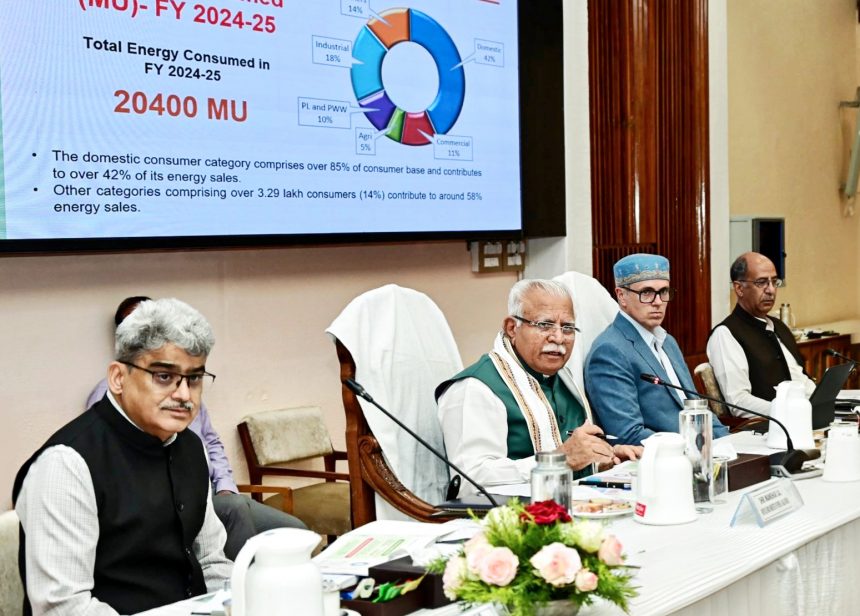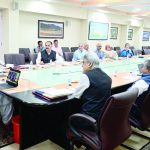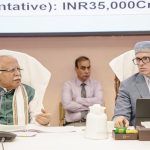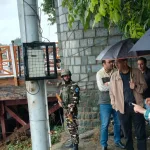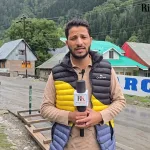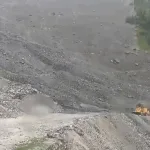Srinagar, June 12: Union Minister for Power and Housing and Urban Affairs Manohar Lal on Thursday said Jammu and Kashmir has vast potential to benefit from the flexibility available under the Indus Waters Treaty and must focus on reducing its high Aggregate Technical and Commercial (AT&C) losses to stabilise its power sector.
“We must increase the capacity of existing hydroelectric projects and take up new ones wherever feasible. Rivers like Jhelum, Chenab and Sindhu have untapped potential that must be harnessed,” Manohar said while speaking to reporters in Srinagar.
He added that the Centre is facilitating hydroelectric expansion through joint efforts by NHPC and other agencies in Jammu and Kashmir.
The Union Minister said that while Jammu and Kashmir still reports higher-than-average AT&C losses compared to other parts of the country, the trend is improving. “The pace at which these losses are reducing is remarkable. But more needs to be done,” he said.
Speaking on progress in narrowing the financial gap between the Average Cost of Supply and Average Revenue Realisation, Manohar said that there was a major gap earlier, but it has significantly come down in the last four years.
The Minister praised J&K’s implementation of smart and prepaid meters. “In terms of installation and implementation, J&K is ahead of many states. Others are far behind,” he said.
He also said the power distribution system, which was previously riddled with inefficiencies, is being fixed. “The intrastate power transmission network has been strengthened by 45 percent,” he added.
The Minister said his visit to J&K included formal review meetings of both the Power and Housing & Urban Affairs departments. “Today, both departments coincidentally under the Chief Minister held their reviews. If there are central-level issues, we will handle them. The state government will resolve local problems,” he said.
He further said that key urban infrastructure projects under the Smart City Mission are nearing completion. “Both Srinagar and Jammu have finished almost all projects. Remaining work will be completed by December.”
He added that progress has also been made under the Swachh Bharat Mission and AMRUT, including procurement of city buses, solid waste management, sanitation, and drinking water systems.
Later in the day, while addressing a press conference marking 11 years of the Modi-led government, Manohar Lal launched a wide-ranging critique of past Congress regimes and detailed what he described as a “transformative decade” under Prime Minister Narendra Modi.
“From 1947 to 2014, most of the time, Congress ruled the country and the states. But 2014 marked the beginning of real change,” he said.
He said Prime Minister Modi, with his background in grassroots politics and years of experience as Gujarat’s Chief Minister, took a detail-oriented, citizen-focused approach to governance. “He worked at every level, from family issues to national challenges, keeping in mind what each citizen needs.”
Referring to the abrogation of Article 370, Manohar Lal said that Jammu and Kashmir had long faced hurdles to integration with the rest of the country.
“The special status had become an obstacle to unity. Its removal was a historic step welcomed nationwide,” he said, adding that the people of J&K understand this better than anyone else.
He added that older citizens above 70 are now also being covered under separate Ayushman Bharat benefits.
Manohar said that India’s internal security has also improved. “At one point, 100+ districts were affected by Naxalism. That number is down to six.”
He said that Jammu and Kashmir and Punjab were most impacted by terrorism, but things have changed drastically under the current dispensation.


